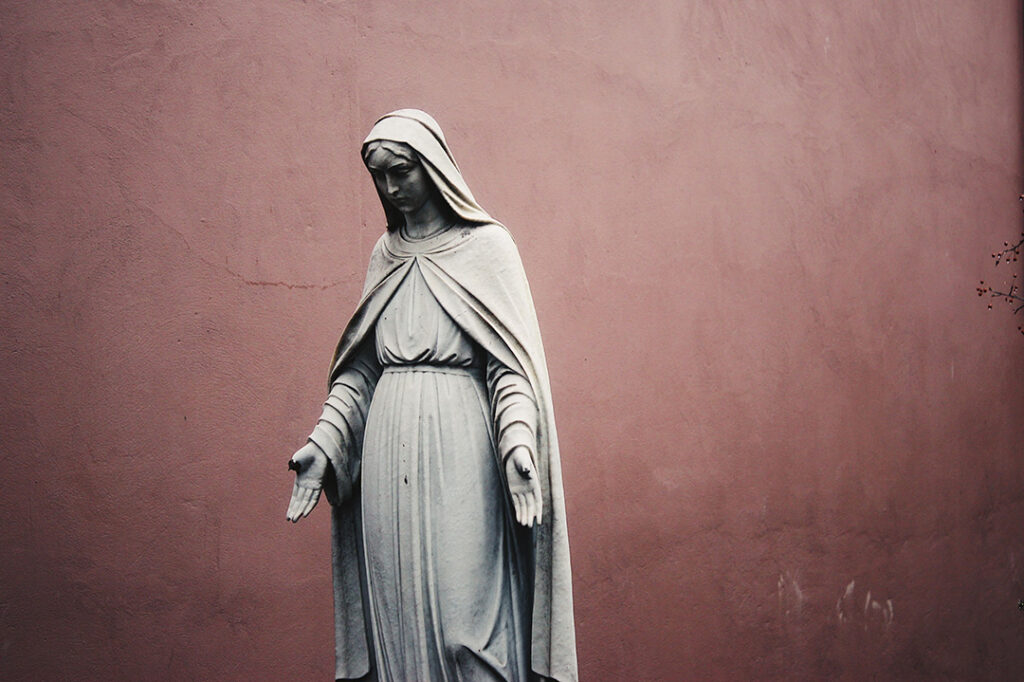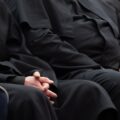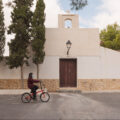Spanish Catholic Church forced to face up to cases of abuse
Spanish Catholic Church forced to face up to cases of abuse
The Spanish Catholic Church has finally started to come to terms with past cases of abuse, thanks to the campaigns and reporting of civil society.
A long-awaited report regarding cases of abuse related to the Spanish Catholic Church was finally released on 27 October 2023. The report, commissioned by the Spanish state and carried out by the office of the Defensor del Pueblo (Ombudsman), estimates that 1.13% of Spaniards have been victims of abuse relating to the Church. Although the report did not use the number itself, this percentage would imply that 440,000 people are victims of such abuse.[1]
The release of the report has led the Spanish Episcopal Conference to express its “pain for the damage caused to some members of the Church,” and to call the report’s recommendations “valuable.” In addition, they have acknowledged the need to consider forms of compensation for the victims.[2]
In this response, it appears the Spanish Church has finally adopted a similar position to other European churches in the face of reports about past abuse. Bishops in France, Portugal, and Germany, among others, have likewise asked for forgiveness and supported the idea of compensation for victims.[3] [4] [5]
However, unlike in these examples, the Spanish report was conducted without the initial agreement or active participation of the Church. In fact, looking back over the last couple of years shows how in the Spanish case, the Church has been pulled to its current position as a result of pressure from civil society. This serves as an important example of society’s role in ensuring accountability in institutions like the Church.
El País leads the way
Allegations of abuse perpetrated by those linked to the Catholic Church have been ongoing in various countries, with a particular increase since the 2000s. However, in Spain, a crucial turning point came in 2018 when the country’s largest newspaper, El País, released a major report detailing cover-ups of abuse by the Church.[6] In response, the Episcopal Conference refused to follow steps taken in France and Germany by commissioning a report or investigation of their own.[7]
This refusal to take active action continued up until December 2021, where once again journalistic investigation into the subject by El País grabbed national headlines. On this occasion, the newspaper presented its allegations directly to Pope Francis, giving him a dossier regarding 251 members of the clergy or lay people accused of sexual misconduct.[8] This triggered an unfavourable response from the Spanish Church, with spokesperson Bishop Luis Arguello calling for El País to show “greater rigour” and saying the accusations were of a “very inconsistent character.”[9]
Civil society speaks up
The high-profile revelations from El País were not the only source of pressure for the Church to investigate cases of abuse. In late December 2021, an organisation named Asociación Nacional Infancia Robada (National Association of a Stolen Childhood; ANIR) published an article in Religión Digital. ANIR, which was initially formed in 2019, has been the most significant of a number of groups representing victims of abuse relating to the Catholic Church.[10] In the article, they accused the Church of “using dodgy figures” and stated that the institution “had no idea of how much pain and terror they continue to cause” to the victims of abuse due to their inaction. To conclude, ANIR contrasted the attitude of Pope Francis and “some cardinals and bishops” in Spain who wished to open investigations, with that of those among the hierarchy who continued to deny there was an issue.[11]
Alongside victims groups and the media, a third area of pressure in early 2022 came from the public statements made by prize-winning author Alejandro Palomas. In late January, Palomas spoke live on the radio about how he was abused as a child at a Catholic school in Catalonia. In response, the school expressed their desire to investigate the allegations and work alongside the Department of Justice in doing so.[12]
Political pressure and action
Palomas’ testimony, which followed the El País investigations and ongoing campaigning by victims groups, added to the overall pressure on the Church in January 2022.
Throughout this month, this pressure began to transfer to the political sphere, where parties sought to make their positions clear. On 26th January, the leftist junior coalition party Podemos joined Basque and Catalan independence parties in calling for Congress to investigate the Church.[13] Meanwhile, the leading opposition party, the conservative Popular Party, rejected such a suggestion. Instead, they repeated a line often used by the Catholic Church itself – that abuse is a societal problem and not something that is specifically or uniquely related to the Church.[14]
However, as the issue was a constant in the headlines in late January, President Pedro Sánchez invited Alejandro Palomas to a meeting. According to Palomas, Sánchez made a commitment that he would “do all that he could” to properly investigate cases of abuse.[15]
Finally, in March 2022, Sánchez’s government announced the creation of a commission led by the Ombudsman, Ángel Gabilondo. It was announced that this commission was to be formed of experts, rather than politicians, and would go ahead despite the fact that the Catholic Church refused to actively participate on the committee.[16]
The report was released
Fast forward 18 months and Gabilondo’s report has finally been released. Its finding has led Pope Francis to request that the entire Spanish Episcopal Conference, made up of almost 80 bishops, attend a meeting in Rome held on the 28th of November. Prior to that, Spanish bishops will hold a General Assembly between the 20th and 24th of November in which they will discuss their next steps.[17] However, while the bishops continue to claim their institution is only part of a wider societal problem, their acknowledgement of responsibility and expression of openness to some form of compensation for victims marks a significant change.[18]
Although there remains a long way to go, it is evident that the position of the Church’s hierarchy is significantly different to that of two years ago. This is undeniably more a result of the pressure the Church faced than the willingness of its leadership to tackle the subject. Therefore, full credit must be granted to the bravery of those who spoke up and campaigned and investigated and to those Catholics who pressured their own institution into a more transparent and honest position about its past.
Interested in similar topics? Go to our Dashboard to learn more.
Sources
[1] Informe sobre los abusos del clero | Gabilondo pide a la Iglesia dinero para un fondo estatal para las víctimas y denuncia “el silencio de quienes pudieron hacer más” | Sociedad | EL PAÍS
[2] Los obispos se disculpan y se comprometen a prevenir futuros casos de abusos
[3] French bishops ask for forgiveness after report released on church sex abuse | Reuters
[4] Portugal: Catholic Church asks abuse victims for forgiveness.
[5] German bishops publicly ask forgiveness for sex abuse | Catholic News Agency
[6] La Iglesia española silencia desde hace décadas los casos de pederastia | Sociedad | EL PAÍS
[7] La Iglesia se resiste a revisar su pasado | Sociedad | EL PAÍS
[8] La Iglesia española afronta una gran investigación de la pederastia con 251 nuevos casos aportados por EL PAÍS
[9] La Conferencia Episcopal, que no investiga la pederastia clerical, pide a El País “mayor rigor” en “sus acusaciones”
[10] Nace la Asociación Infancia Robada para proteger a víctimas del ámbito eclesial – La Opinión de Zamora
[11] Infancia Robada: “No tenéis ni idea del dolor que algunos de vosotros causasteis a niños y niñas, del terror que seguís causando”
[12] La Salle, ante la denuncia de Alejandro Palomas: “Asumiremos responsabilidades, no queremos cubrir ningún tipo de abusos”
[13] Podemos, Bildu y ERC pedirán una comisión en el Congreso sobre los abusos a menores en la Iglesia
[14] Pablo Casado pide que el Congreso investigue “todos los casos de pederastia”, no solo los de la Iglesia
[15] Pedro Sánchez agradece a Alejandro Palomas el “coraje” de hacer público que sufrió abuso sexual
[16] Gabilondo reitera a los obispos que la comisión antiabusos no será “un tribunal ni un juicio”
[17] El Papa convoca a los obispos españoles en Roma poco después del escándalo de los abusos sexuales
[18] Los obispos se disculpan y se comprometen a prevenir futuros casos de abusos






